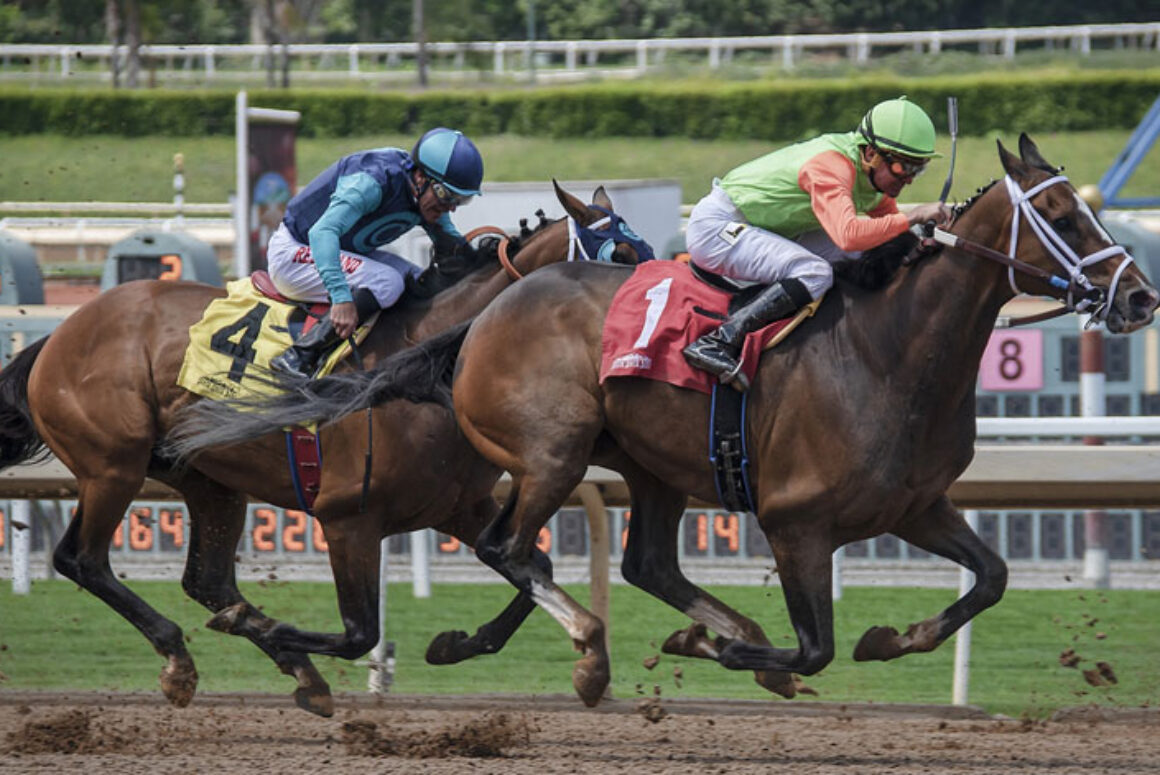Like England and Ireland, Wales also has a rich and deep equine history, albeit one that’s less known nowadays. Domestic racing in Wales began as early as the 1700s and it became an international sport in less than a hundred years.
Early Days
After the point-to-point races that dominated the 1700s, horse racing in Wales started to take on a more organized look during the early 1800s. While English and Irish entries in flat races across Wales were quite common at Aberystwyth, Cowbridge, Conwy, Haverfordwest, and Wrexham Brecon by the 1830s, Wales’s first officially recognized steeplechase started at the Bangor-on-Dee racecourse in 1859.
Trotting in Wales
Although it isn’t exactly a popular international event, trotting (harness racing) has deep connections to Wales’s equine culture. Traditionally, the jockey used to sit on a two-wheeled sulky pulled by a Welsh cob, but several types of horses including thoroughbreds are now used in modern trotting races. The popularity of trotting races reached its peak during the 19th Century.
The first trotting event (1884) in Wales started at Llangadog and it is still an active hotspot for Welsh harness racing as a whole. About 13 trots are held each year at the Tir Prince’ in Towyn, while the nation’s premier trotting event is held in the old market town of Tregaron, by the Tregaron Trotting Club.
The Cheltenham Connection
The Cheltenham Gold Cup (5,294 metres) is a highly revered jump race across the world, as well as being one of the richest (£468,750) National Hunt Trophies in the UK. So far, two Welsh-trained horses have managed to win the prestigious Cheltenham Gold cup. A bay gelding by the name of Patron Saint won the Gold Cup in 1928.
More than 60-years later, a Welsh-trained chestnut gelding by the name of Norton’s Coin made history by winning the Cheltenham Gold Cup in 1990. What makes the win incredible is that Norton’s Coin won with 100/1 ante-post betting odds against him! To find the odds for all competing horses in 2021, see the Cheltenham Festival tips on gg.co.uk.
The Legacy of Champion Welsh Jockeys
Despite having a small population, Wales has never lacked talent in sport. Anyone familiar with horse racing in the UK already knows the legendary Welsh jockey, Jack Anthony. He won the biggest and the richest jump race in the UK, aka the Grand National thrice (1911, 1915, and 1920), as well as winning the Champion Jockey of the Year award in 1914 and 1928. Some of the other notable jockeys from Wales are:
Hywel Davies – He won the Grand National in 1985, the Whitbread Gold Label Cup in 1986, and the Queen Mother Champion Chase in 1990.
Carl Llewellyn – One of the most successful jockeys from Wales, Llewellyn won two Grand Nationals (1992 & 1998), the Aintree Hurdle (2000), the Triumph Hurdle (1998), two Challow Novices’ Hurdles (1998-99 & 1999-2000), the Feltham Novices’ Chase (2004), the Sefton Novice’s Chase (1999), and the Long Walk Hurdle (1993).
Geoff Lewis – Perhaps the most successful Welsh jockey of all time, Geoff Lewis has had an amazing career and the following are his biggest Grade I wins.
- The Coronation Stakes twice in 1958 & 1971
- The July Cup in 1963
- The Champion Stakes twice in 1965 & 1970
- The Lockinge Stakes twice in 1966 & 1971
- 2,000 Guineas Stakes in 1969
- The Sussex Stakes in 1969
- The Dewhurst Stakes in 1970
- The Epsom Derby in 1971
- The Ascot Gold Cup in 1971
- The Eclipse Stakes in 1971
- The King George VI and Queen Elizabeth Stakes in 1971
- The Sun Chariot Stakes in 1971
- The Coronation Cup twice in 1971 & 1972
- The Epsom Oaks twice in 1971 & 1973
- 1,000 Guineas Stakes in 1973
- The Yorkshire Oaks in 1973.
- The International Stakes in 1973
- The Sprint Cup in 1979
The Welsh Grand National
A Grade III National hunt event, the Welsh Grand National (6,154 metres) started back in 1895 and it continues to grow more popular in recent years. The handicap steeplechase with a purse of £150,000 is held annually on the 3rd Day of the Christmastide. The Chepstow Racecourse plays host to the Welsh Grand National nowadays, but the steeplechase started at the Ely Racecourse in Cardiff.
Post-World War 2, the venue shifted to Caerleon for one year, only to be permanently shifted to the Chepstow Racecourse in 1949. Trained by Evan Williams, Secret Reprieve was guided to a win by Adam wedge in 2020.


